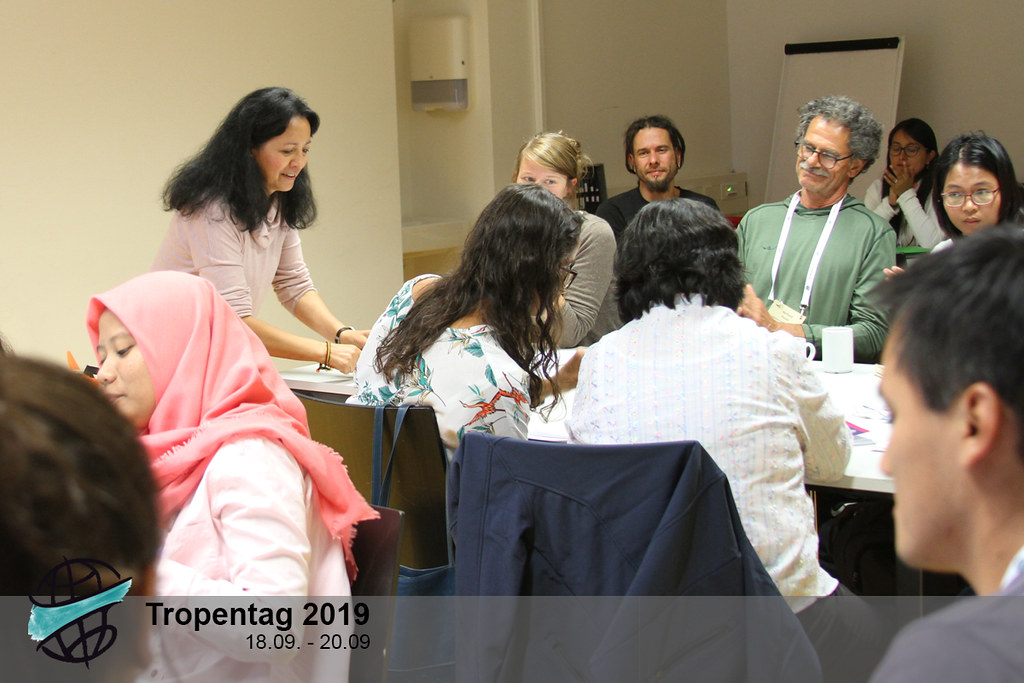Make science, not war
What do a mining company in Peru, a forest in Ecuador and a river in India have in common? All of them have been stages for conflicts caused by unsustainable practices. The impact caused by those practices in nature affects the ones who most need it: the people who historically live there.
On an attempt to understand this global and complex topic, scientists from different areas got together in Kassel yesterday afternoon, kicking off the Conference Tropentag 2019. Organized by the Center for Development Research (ZEF) at University of Bonn, the workshop called attention to a potential (and surprising) solution: ask the locals! Listening and integrating their knowledge allows easier understanding of where the conflict is happening, its intensity and action taken when they scale up.

It might sound simple but to integrate local knowledge in practice, however in such large extension you probably need a hand from the locals and from the technology side. Social media, apps and remote sensing make possible to identify and map the conflicts, and train the local population to collect data and participate in the research complements the technical tools aspect.
No doubt “this is a big and complex topic”, as mentioned one of the organizers Dr. Dennis Irahola, and there are still gaps and obstacles to bring together local knowledge and science. However, one more step was given on the way to find solutions to environmental conflicts: sharing experiences and discussing solutions. The outputs of the workshop will feed the projects on the Observatory of Environmental Conflicts in Colombia.

On an attempt to understand this global and complex topic, scientists from different areas got together in Kassel yesterday afternoon, kicking off the Conference Tropentag 2019. Organized by the Center for Development Research (ZEF) at University of Bonn, the workshop called attention to a potential (and surprising) solution: ask the locals! Listening and integrating their knowledge allows easier understanding of where the conflict is happening, its intensity and action taken when they scale up.

It might sound simple but to integrate local knowledge in practice, however in such large extension you probably need a hand from the locals and from the technology side. Social media, apps and remote sensing make possible to identify and map the conflicts, and train the local population to collect data and participate in the research complements the technical tools aspect.
No doubt “this is a big and complex topic”, as mentioned one of the organizers Dr. Dennis Irahola, and there are still gaps and obstacles to bring together local knowledge and science. However, one more step was given on the way to find solutions to environmental conflicts: sharing experiences and discussing solutions. The outputs of the workshop will feed the projects on the Observatory of Environmental Conflicts in Colombia.






Comments
Post new comment